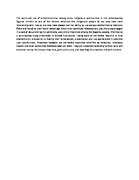| dc.description.abstract | The continued use of ethno-medicines among some indigenous communities in the contemporary Uganda remains as one of the clearest evidence that indigenous people do not only have close relationship with nature, but also have always had the ability to use various environmental elements (flora and fauna) to their health advantage. Given their continued relevance and use, this study engaged in a task of documenting the commonly used ethno-medicines among the Baganda people, informed by a participatory study undertaken in Gombe Sub-county. Taking stock of the herbal resource in local environments is essential to making their conservation, preservation and use appreciated in potential user communities. Presented herewith are the herbal medicines identified by herbalists, traditional healers and local community members who use them. They are presented according to their local and botanical names, the disease they treat, plant parts used, and how they are prepared and administered. | en_US |


